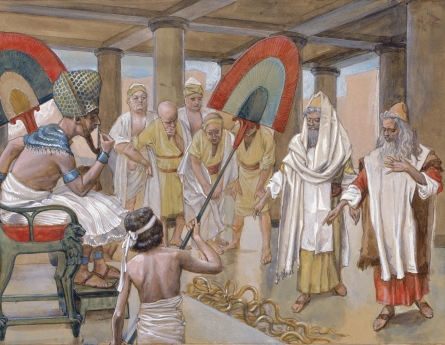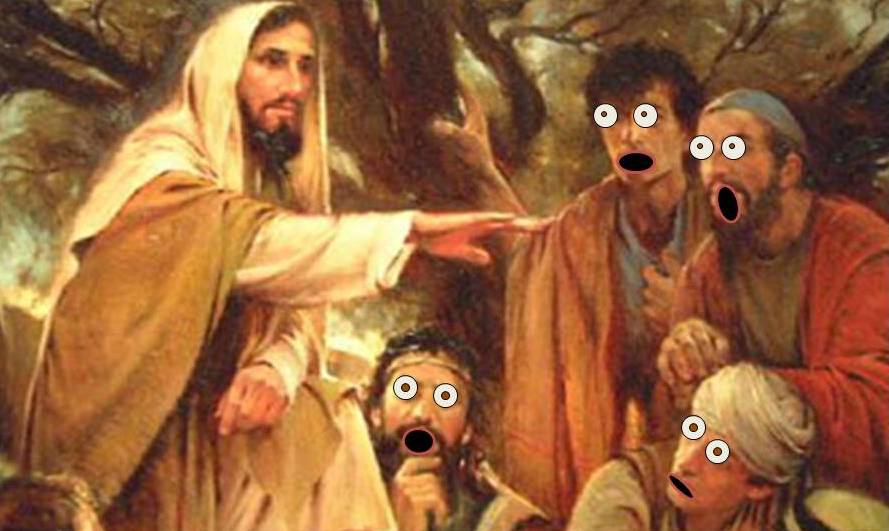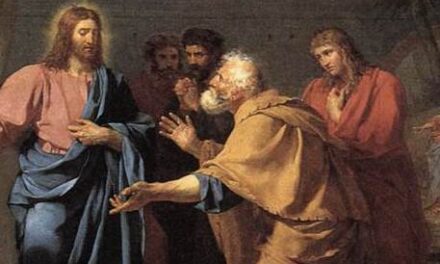I’ve mentioned before that I teach faith formation lessons for children at a Catholic school. Occasionally, I’ll treat the kids to a magic trick at the end of the lesson if they behaved well. In one class I performed a card trick called the Whispering Queen. I selected a boy to help and pulled out the Queen of Hearts from the deck. I then put the card to my ear and pretended the queen was giving me instructions to relay to the boy. The queen asked him to cut the cards into three piles and then told him to move some cards around from one pile to another. I even put the card up to the boy’s ear and scratched the card. “See, she’s talking,” I said. Eventually I told him that the queen wanted him to take one card from the top of a pile and place it down on the table. I then took the queen and slid her eyes under the card on the table so she was the only one seeing the card. She then again whispered in my ear to tell me what the card was. I told the kids, and alas, they turned over the card and the queen was right!
As with any magic trick the children wanted to know how it worked. The next day the boy came up to me with a couple friends and proudly said, “I know how the Whispering Queen trick worked!” – “Oh really?” I responded. – “Yeah, the queen didn’t actually talk.” – “That’s true…” I said. “But how then did I know what the card was?” No answer.
 Jesus the magician?
Jesus the magician?
The kids missed the point of the trick. They were so caught up on the fact that the Queen of Hearts didn’t actually speak that they missed the real purpose of the trick. This made me think about Jesus’ miracles as told in the Gospel. The people who encountered Jesus were so caught up with his miraculous powers that they missed the point: his miracles were for bringing glory to his Father. All Jesus did was not for himself but was for pointing people to God. To any passerby, Jesus’ miracles appeared like the works of the magicians of his time. He used things like saliva and mud, which the magicians also used to perform their miracles. It’s only once we get to know Jesus that we see the deeper meaning behind the outward miracle.
In the Gospel of Mark after the miraculous feeding of the 5,000, the Pharisees were trying to get Jesus to perform a miracle to show God’s power. Jesus responded, “Why do the people of this day ask for a miracle? No, I tell you! No such proof will be given to these people!” (Mark 8:12, GNT). Then Jesus warns his disciples about the “yeast of the Pharisees and the yeast of Herod” (v. 15). But they think Jesus is talking about them not having any bread. They’re so caught up with the feeding of loaves and fishes to the multitudes that they miss the deeper meaning of Jesus’ words and actions. He sharply says to them, “Why are you discussing about not having any bread? Don’t you know or understand yet? Are your minds so dull?” (v. 17).
 Magic in the Bible
Magic in the Bible
Even today we think that Jesus’ miracles are what make him divine, yet the scriptures are filled with references to miracles performed by others. Just take a read through Exodus 7 and 8 about the seven plagues of Egypt and Pharaoh’s magicians. Jesus is divine because of the Resurrection. The Resurrection proved Jesus’ divinity and therefore gave meaning to his miraculous feedings and healings. The biblical magicians’ power was not from God. Jesus’ was. But his miracles pointed to something deeper: they showed not just the power of God, but the love and care of God, the desire to feed and heal and restore sight.
In our lives and our faith there are surface-level things that distract us. We can get caught up in certain religious pieties or church politics or vestments or whether the Mass was “good” or even how bread turns into Christ’s Body. Our relationship with God is not about these things. Let’s not miss the point like the Pharisees and apostles or the kid who thought my magic trick was all about a talking card. God calls us to a deeper meaning, a deeper purpose: faith in a loving, caring, and deeply personal God.
Related posts:
Listen to an audio version of this post…
Music by Kevin MacLeod








